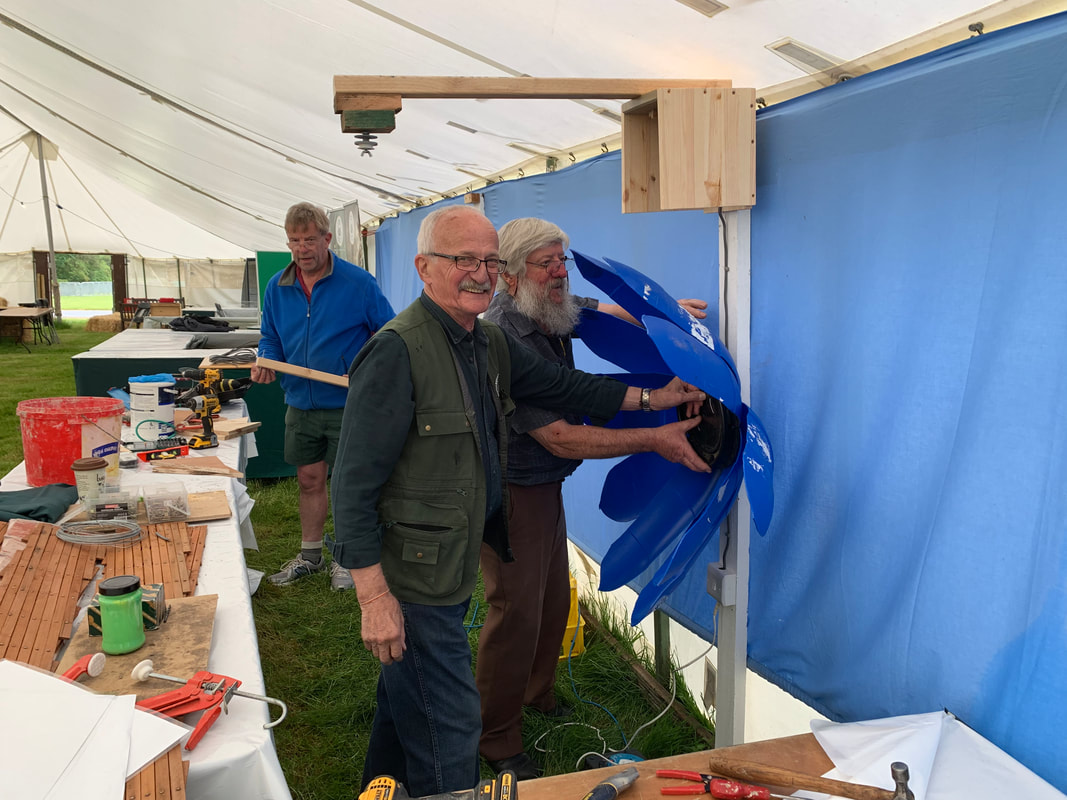|
Somerset Beekeepers’ Association is calling on visitors to the Royal Bath & West Show, which starts tomorrow (May 30) at Shepton Mallet, to be on the alert for a major threat to the UK’s pollinators.
For the first time they are running an interactive exhibit about the Asian hornet (Vespa velutina nigrithorax) in the Show’s popular Bees & Honey Feature. Association chairman Anne Pike said: “We want gardeners, farmers, walkers and all countryside-lovers, as well as beekeepers, to be on high alert for the imminent arrival of Asian hornets. “These hornets look like black wasps with yellow tipped legs and are as devastating to pollinators as foot and mouth disease was to livestock. “In France, where Asian hornets arrived in 2004, honey production is down by 50 per cent reflecting the impact these non-native and highly invasive insects are having on honeybee numbers.” Members of the newly-formed Asian Hornet Action Team will be on hand to talk to visitors about the hornet and explain how to correctly identify them. In addition to large information banners, there will be glass cases displaying Asian hornets next to European hornets and honeybees, identification leaflets to take away and children’s colouring-in sheets. Master Beekeeper Lynne Ingram, who heads up the Action Team, added “The greatest resource we have in fighting the Asian (yellow legged) hornet are members of the public. They are our eyes. Come into the tent and find out what an Asian hornet looks like. This time of year, look out for tiny embryo nests in sheds or garages. If you wait you will see the queen returning to feed her larvae. In June the workers will emerge and you may find them drinking nectar on flowers. If you see one, take a photo and report it on the Asian Hornet Watch app or contact [email protected] for further advice.” In addition, Somerset Beekeepers will be demonstrating the invaluable role honeybees play in the pollination of the nation’s best-loved food crops including apples and strawberries. Somerset members, together with beekeepers from Avon and Wiltshire, will be taking part in a highly competitive honey show, will run candle rolling for children, offer free honey tasting and advice about all aspects of beekeeping. In addition, visitors will have plenty of opportunities to see honeybees at work in observation hives, where bees are behind glass, and in the outdoor bee garden where beekeepers will demonstrate behind protective netting. To find out more visit Somerset Beekeepers’ website: https://www.somersetbeekeepers.org.uk/ Ends For further information contact: Anne Pike, Chairman of Somerset Beekeepers’ Association, tel: 07971 275840; Lynne Ingram, Co-ordinator of Somerset’s Asian Hornet Action Team, tel: 07846 165877 Notes to editors: Somerset Beekeepers’ Association is a Registered Charity run by volunteers and works to advance the craft of apiculture within its membership and to promote general awareness and understanding of honeybees. Asian hornets (Vespa velutina nigrithorax) are slightly smaller than native European hornets and look like large black wasps with orange face and yellow legs:
A single Asian hornet can kill 50 bees a day, with a nest containing up to 6,000 workers and up to 350 queens. In Jersey, France and large areas of Western Europe they are stripping the environment bare of insects before moving on to prey on managed honeybee colonies. Asian hornets are a notifiable invasive species and should be reported immediately with photo using: Asian Hornet Watch app [email protected] [email protected] Comments are closed.
|
Archives
September 2023
Categories
All
|
Somerset Beekeepers Association Charity © 2021 Registered CIO Charity 1206483
Affiliated to the British Beekeepers Association
Click here to view our Privacy Policy
Affiliated to the British Beekeepers Association
Click here to view our Privacy Policy

 RSS Feed
RSS Feed
